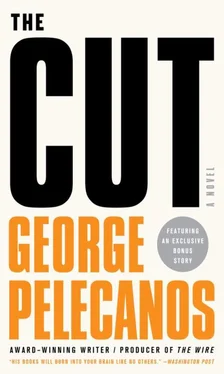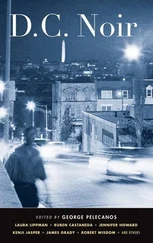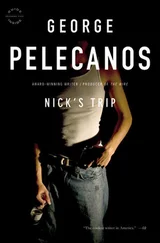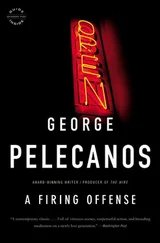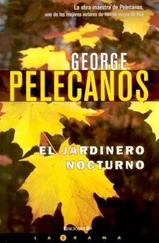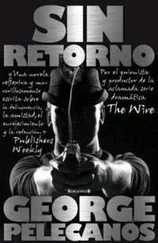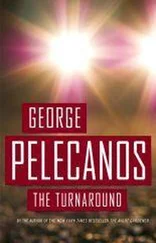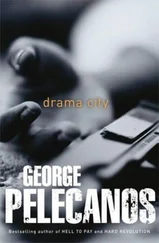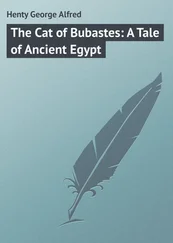George Pelecanos - The Cut
Здесь есть возможность читать онлайн «George Pelecanos - The Cut» весь текст электронной книги совершенно бесплатно (целиком полную версию без сокращений). В некоторых случаях можно слушать аудио, скачать через торрент в формате fb2 и присутствует краткое содержание. Жанр: Криминальный детектив, на английском языке. Описание произведения, (предисловие) а так же отзывы посетителей доступны на портале библиотеки ЛибКат.
- Название:The Cut
- Автор:
- Жанр:
- Год:неизвестен
- ISBN:нет данных
- Рейтинг книги:3 / 5. Голосов: 1
-
Избранное:Добавить в избранное
- Отзывы:
-
Ваша оценка:
- 60
- 1
- 2
- 3
- 4
- 5
The Cut: краткое содержание, описание и аннотация
Предлагаем к чтению аннотацию, описание, краткое содержание или предисловие (зависит от того, что написал сам автор книги «The Cut»). Если вы не нашли необходимую информацию о книге — напишите в комментариях, мы постараемся отыскать её.
The Cut — читать онлайн бесплатно полную книгу (весь текст) целиком
Ниже представлен текст книги, разбитый по страницам. Система сохранения места последней прочитанной страницы, позволяет с удобством читать онлайн бесплатно книгу «The Cut», без необходимости каждый раз заново искать на чём Вы остановились. Поставьте закладку, и сможете в любой момент перейти на страницу, на которой закончили чтение.
Интервал:
Закладка:
“Life’s rich pageant,” said Petersen.
“That’s a rock record from back in your day, right?”
“Inspector Clouseau, originally.”
“You got me on that one.”
“I have twenty years on you. At times the perspective is obvious. Other times, no.” Petersen looked him over with the respect that men who have not served give to those who have. “You’ve seen a lot, haven’t you?”
“It’s been interesting, so far.” Lucas slipped his notebook into his jacket and picked up the David Hawkins file off Petersen’s desk.
“Bring me something back I can use,” said Petersen.
Lucas nodded. “I’ll get out there.”
The next morning he stopped by the Glenwood Cemetery in Northeast to see his baba. Glenwood was an old but well-kept graveyard, acres of rolling, high-ground land holding plots with headstones memorializing lives going back to the 1800s. His father was buried here, beside his own parents, on the west side of the facility, which bordered dead-end residential streets stemming off North Capitol in a neighborhood called Stronghold. Past this last section of graves the land dropped off and there went Bryant Street, its short block of row homes in a neat descending line. Lucas looked down at his father’s marker and placed a dozen roses on his plot. He said a silent prayer of thanks for the granting of life, did his stavro, and got back in his four-wheel.
He drove a 2001 Jeep Cherokee, the old boxy model with the legendary in-line 6. The model had been discontinued years ago, but because it was sturdy and reliable there were many of them still on the streets. In that respect it was the aughts version of the old Dodge Dart. With his black Jeep, empty of bumper stickers or decals, and his utilitarian clothing, Lucas was unmemorable by design, a tradesman, maybe, or a meter reader, just another workingman quietly going about his business in the city.
Lucas went up to Peabody and began to drive the route of David Hawkins and his friend Duron. Missouri, North Capitol, Allison, and then Rock Creek Church, where it had begun to go wrong. He recalled the adrenaline rush he had experienced the day he and a couple of buddies from the wrestling team had stolen a car, back in high school. It didn’t matter who suggested it; they had all participated with enthusiasm, and all had been caught, arrested, and charged. They pled down, and, because they were white and came from stable families, they had pulled community service and loose supervision. There were no further problems; Lucas’s mistake was a one-shot deal, and he did not want to shame his parents in that way ever again. By the time he entered the Marine Corps, his conviction had been expunged.
He understood why David and Duron had stolen the SUV. Teenage boys did stupid things; their brains were wired for impulse and fun. Wasn’t but a little more than ten years back that he had been one of those reckless boys, too, before September 11 and his tour of Iraq. A sobering decade, a decade that stole his youth.
Lucas drove west on Upshur. He gunned the Jeep going down the hill and pulled over when he reached the commercial strip, near Georgia Avenue. He saw the alley, cut along a salmon-colored building, currently unoccupied, where the boys had been trapped. He looked at the south and north sides of the strip and he studied the businesses and the layout of the street. In his notebook he drew a map showing the locations of the establishments. On the south side: a funeral parlor, a dry cleaner’s, a carryout featuring Chinese/steak-and-cheese, a nail salon, and a hair salon; on the north side: a storefront church, a market selling wine and beer, a furnishings store that seemed too upscale for the neighborhood, a hair salon, a Caribbean cafe, the alley, the salmon-colored building, another Chinese/American hybrid, a seafood carryout, a beverage shop, and on the corner a shuttered barbershop. Many of the stores had English and Spanish signage in their windows; there were blacks, Hispanics, and a few whites out on the street.
He got out of the car and, using his iPhone, took photographs of these businesses and their spots on the block. No one questioned him or got in his way. He went around the corner and noted the commercial layout of Ninth: the Petworth station of the U.S. Post Office, a private-detective agency, another funeral home, the Salvadoran restaurant where Duron had tried to hide, an embroidery shop, and a corner Spanish grocery store that did not have any English signage and was padlocked shut. Above the detective agency door was a lightbox that read “Strange Investigations,” with several letters enlarged by the magnifying-glass logo placed over them. He had heard tell of the man, Derek Strange, and his latest partner, a middle-aged Greek whose name he could not recall.
Lucas retraced his steps, crossed Upshur and stood by the Chinese eat-house, where in his report Officer Clarence Jackson stated that he had been parked, and saw that indeed it afforded a direct view of the alley. He took a photograph from that perspective. He looked across the street to the market where Jackson’s partner had bought his smokes, and he saw that there was a fire hydrant in front of it. That would explain why Jackson had parked across the street. It would have explained it perfectly, except for the fact that Jackson was police.
Lucas crossed Upshur once again and entered the beer and wine market. It was clean, well stocked with alcohol and food packaged in bags, its walls lined with steel shelving and reach-in coolers. Behind the register counter was a man in his forties, round brown face, white shirt open at the neck revealing a gold crucifix in a thicket of black chest hair. By his bearing and the gold-and-diamond ring on his finger, Lucas surmised that he was the owner. When questioned, the man confirmed this. Lucas gave him his name and identified himself simply as an “investigator.” He asked if the owner, who called himself Odin, recalled the day of the arrest, and Odin said that he did. He asked Odin where the officer had been parked when his partner had entered the market to buy his smokes, and Odin said, “He park out front.” When Lucas noted that there was a fire hydrant out front, Odin, who like many hardworking Hispanics was a law-and-order man, said rather defensively, “But he is police; he park where he want!”
Lucas got the man’s contact information, thanked him, and made a note in his book regarding the pronunciation of Odin’s name. He left the store and took multiple photographs of the alley from the point of view of the empty parking spot. He framed these so that the fire hydrant was in the foreground of the shots.
THE NEXT day, Lucas was sitting on the edge of Constance the intern’s desk, trying to talk her into something, when Petersen called out to him from his office.
“We should continue this conversation later on,” said Lucas.
“You think so?” said Constance, a strand of dark hair over one eye, light freckles across the bridge of her nose. She reminded Lucas of one of those J. Crew girls. There was no trace of a smile on her face, but there was a light in her eyes, and Lucas knew that if he wanted to be in, he was in.
Petersen was behind his desk, loud striped shirt untucked, his blond hair shaggy around his face, looking like an aged Brian Jones. He was checking out photos on his computer screen, displayed from a disk that Lucas had burned from his iPhone.
“These are interesting,” said Petersen, Lucas now standing beside him.
“The ones with the hydrant in the foreground? That would approximate the sight line of Officer Jackson. From where he was actually parked, as opposed to where he said he was parked.”
“He couldn’t have seen deep into the alley from there.”
“He could only have seen the head of it, and a small piece of it at that. The report says the Denali was found at the back edge of that salmon-colored building. So, from that perspective, there’s no way Jackson could have observed David and Duron get out of that SUV.”
Читать дальшеИнтервал:
Закладка:
Похожие книги на «The Cut»
Представляем Вашему вниманию похожие книги на «The Cut» списком для выбора. Мы отобрали схожую по названию и смыслу литературу в надежде предоставить читателям больше вариантов отыскать новые, интересные, ещё непрочитанные произведения.
Обсуждение, отзывы о книге «The Cut» и просто собственные мнения читателей. Оставьте ваши комментарии, напишите, что Вы думаете о произведении, его смысле или главных героях. Укажите что конкретно понравилось, а что нет, и почему Вы так считаете.
